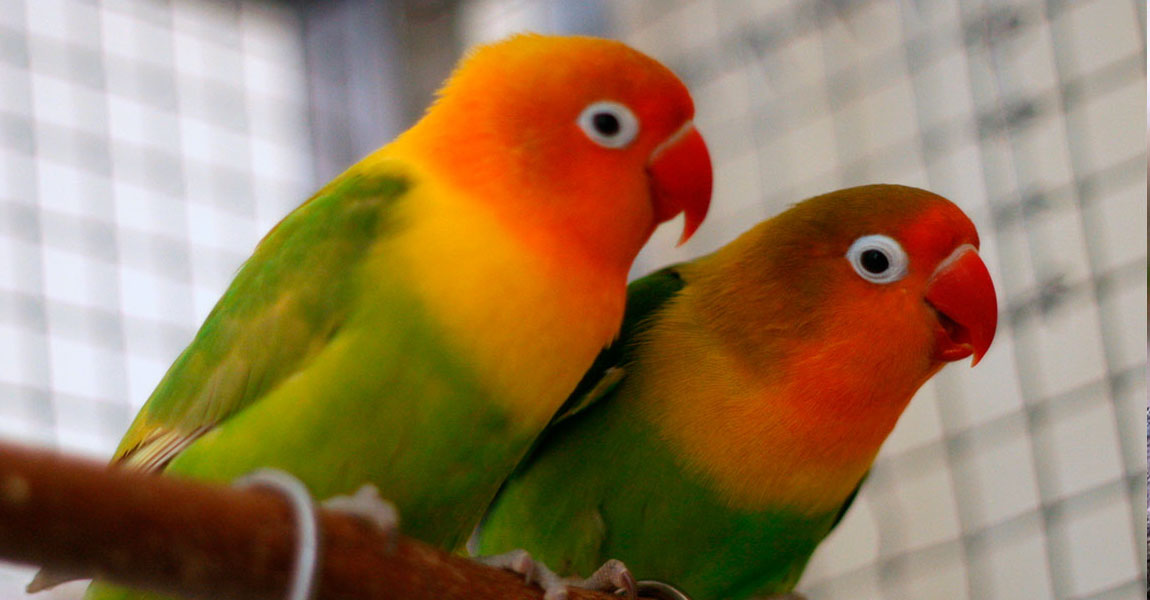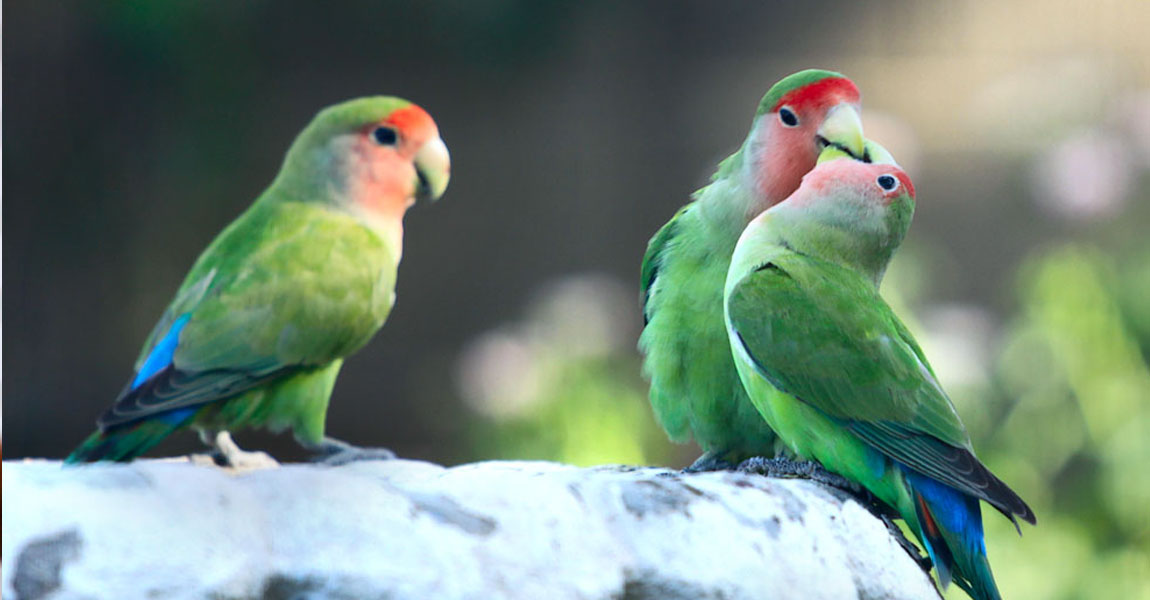Attractive and loving, lovebirds make great pets. You'll never be bored around these creatures, with their chirping skills and their wonderfully bubbly personality. These pets are preferred over many others because of their small size and easy maintenance. They also tend to be healthier than other birds. Here's how to care for them.
Ask yourself these questions before getting a lovebird:
Do I have a safe space to keep this lovebird?
Do I understand that I am able to provide a home for him at all times? Lovebirds can live for 10 to 20 years.
Am I financially able to provide for this bird? Fortunately, lovebirds have modest related costs but you will still need to budget for the additional requirements, such as housing and seed.
Do I have enough time to focus on playing, singing, and talking to this bird?
Will the noise of this lovebird be bothersome to my family or neighbors? Most families adjust with ease to having a lovebird around. They are not difficult to live with.
Who will take care of this bird while it lives in our household?
If you have answered yes, or know the answer to these questions, you are ready to choose a lovebird. Find a reliable breeder or pet store. Check the health guarantee when you purchase your lovebird, in case an illness occurs.
Creating the Lovebird's Housing
Purchase a cage. It should be at least twenty-four to thirty inches wide with two or more perches. The perches should to be small enough to hold the bird's feet.Prepare at least three perches of different widths.
Include plenty of toys, for enrichment. Switch the toys every three or four days (use them in a rotation).
Ladders and swings are favorites as well as bamboo rings.
Always make sure that any toys you add are especially made for birds, as many things are toxic to birds. Take note that lovebirds love to chew!
Keep the cage clean at all times. Clean it at least once a week. Change the water daily.
Feeding the Lovebird
A recommended food is a seed mix that states it is "recommended for lovebirds".Give nutritious foods. To stay healthy, for every meal, a lovebird needs something nutritional. Give it fresh food treats three to four times a week. Lovebirds enjoy fruits and vegetables such as apples, carrots, broccoli, cabbage, spinach, banana, papaya and melons. Wholegrain breads are okay, but avoid anything containing high levels of fat, salt and sugar.
Always get rid of any uneaten food from the cage, within 12 hours.





